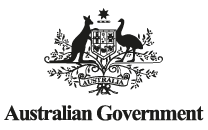Inspector-General of Biosecurity
Role and responsibilities
The Inspector-General of Biosecurity (Inspector-General) is an independent, statutory officer appointed, under Section 566A of the Commonwealth Biosecurity Act 2015, by the Federal Minister for Agriculture, Fisheries and Forestry. The Inspector-General is responsible for reviewing the performance of functions, or exercise of powers, by biosecurity officials in the Department of Agriculture, Fisheries and Forestry (the department).
The Biosecurity Act 2015 creates the Inspector-General’s mandate, sets out the relationship with the Director of Biosecurity (the Secretary of the Department of Agriculture, Fisheries and Forestry) and the Federal Minister for Agriculture, Fisheries and Forestry. The Biosecurity Regulation 2016 further prescribes the provisions and processes of conducting reviews, information gathering and publishing review reports on Inspector-General website.
Inspector-General undertakes systems’ reviews rather than assessments of only a single function or biosecurity official. Inspector-General reviews provide assurance over Australia’s preventative biosecurity risk management systems. In any review, the Inspector-General may choose to explore topics such as: governance, regulation, policymaking, strategy and innovation, assurance and verification, people capacity and capability, technology, infrastructure and operational capability, data management, funding and investment, stakeholder engagement, and the implementation of plans and recommendations.
The Inspector-General prepares review reports and shares with the Director of Biosecurity and the Minister for Agriculture, Fisheries and Forestry. Review reports are published on the Inspector-General’s website, except for information that would be prejudicial to the public interest.
The Inspector-General prepares review reports and shares with the Director of Biosecurity and the Agriculture Minister. Review reports are then published on the Inspector-General’s website, excluding the information that would be prejudicial to the public interest.
Scope
The Inspector-General’s scope includes all biosecurity arrangements and actions within the remit of the Federal Department of Agriculture, Fisheries and Forestry:
- Pre-border arrangements and actions. For example, the department’s work with foreign government agencies to manage biosecurity risks, international standard-setting bodies, importers, offshore risk assessments and intelligence gathering, and capacity building to mitigate biosecurity threats to Australia.
- At the border arrangements and actions. For example, screening and inspections, enforcement, quarantine, and engagement with regulated entities.
- Immediate post-border arrangements and actions. For example, surveillance and emergency response planning and execution.
The Inspector-General’s scope does not extend to:
- biosecurity (and other) regulatory systems of other Commonwealth and state/territory agencies
- international trade issues and market access opportunities
- management of human health biosecurity risks by the Department of Health, Disability and Ageing
- regulatory systems of the department that are outside the remit of the Biosecurity Act 2015, including the following:
- imported food,
- importation of illegally logged timber,
- administration of primary industry levy and charge collection,
- goods exported out of Australia.
Independence
The Biosecurity Regulation 2016 provides for independent reviews of the performance of functions and exercise of powers by biosecurity officials. Reviews that are independent of the regulatory functions of biosecurity officials (including the Director of Biosecurity) and the systems that they use will result in overall system improvements and provide an assurance framework for stakeholders of the system. This will ensure that Australia’s biosecurity system maintains its integrity and continues to improve into the future.
The Inspector-General of Biosecurity conducts reviews independently of the Agriculture Minister and the Director of Biosecurity. This includes the way a particular review is to be conducted, or the priority to be given to a review.
The requirement for the Inspector-General of Biosecurity to consult the Director of Biosecurity and Agriculture Minister on the annual review program provides them with the opportunity to be aware of the matters the Inspector-General intends to review in that year. The Director and Minister may make suggestions on the annual review program, but the Inspector-General of Biosecurity is not bound to follow any such suggestion.
Information gathering power
Under the Biosecurity Act 2015:
- The Director of Biosecurity must comply with any reasonable request from the Inspector-General of Biosecurity for assistance for the purposes of conducting a review.
- The Inspector-General of Biosecurity may request the Director of Biosecurity give information or documents to the Inspector-General of Biosecurity or answer questions relevant to the review.
Biosecurity Import Risk Analysis (BIRA)
The Inspector-General may also review the process of conducting Biosecurity Import Risk Analyses (BIRA) as regulated under the Biosecurity Act 2015.
A review of BIRA process conducted by the Inspector-General is not a merits review. This means that the science that was relied upon, or the content of the recommendations that were made, will not be considered as part of the review by the Inspector-General. However, there are sufficient opportunities through the BIRA process for stakeholders to contribute to the scientific analysis and content of reports. In addition, the Director of Biosecurity can invite the scientific advisory group (SAG) to be involved at any stage of a BIRA.





